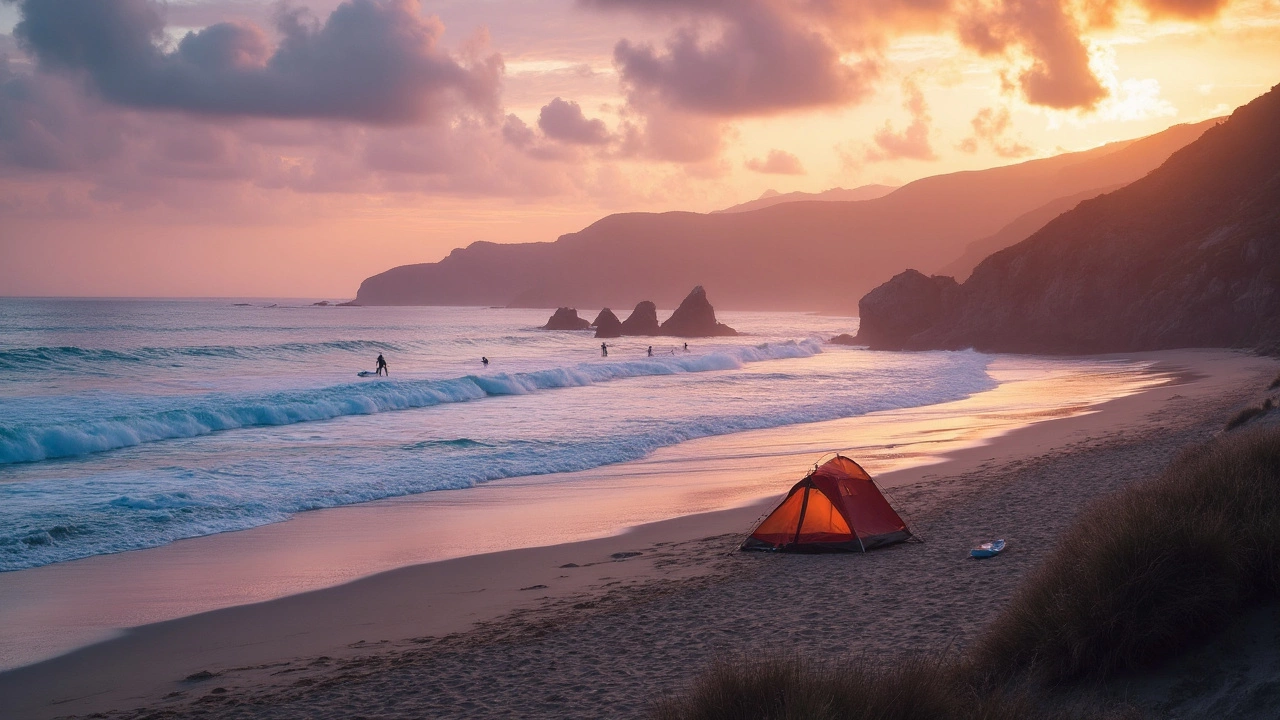Free Beach Camping: Your Practical Guide to Free Seaside Nights
Ever dreamed of falling asleep to the sound of waves without paying a night’s fee? Free beach camping lets you do just that, but you need to know the basics before you roll out your sleeping bag. Below you’ll get the real‑world rules, a handful of top free spots, and the gear tricks that keep you comfortable and legal.
Are Free Beach Campsites Legal?
In the UK most beaches are public land, but that doesn’t automatically give you the right to pitch a tent. Local by‑laws, council bylaws, and the Scottish Outdoor Access Code each have their own limits. In England and Wales, you can usually camp for a night on a beach that isn’t designated as a protected area, as long as you leave no trace and move on after sunrise. Scotland is a bit freer – the Access Code lets you stay for up to three nights on most coastlines unless a specific restriction says otherwise.
Breaking the rules can mean a fine, a warning or even a police visit, so the safest move is to check the local council website or a recent campsite guide before you set up. If you see signs saying “No Camping” or “Private Property,” steer clear. When in doubt, ask a nearby lifeguard or shop keeper – they often know the unwritten local etiquette.
Top Free Beach Camping Spots & Tips
Here are a few places where free beach camping works well:
- Northumberland Coast – Seahouses Bay: Small, sandy, and usually quiet after dusk. Arrive early to snag a spot away from the tide line.
- Cumbria – St. Bees Beach: The council allows overnight stays on the northern side of the beach as long as you’re respectful and clean up.
- Scotland – Portpatrick: The Access Code kicks in, giving you up to three nights on the pebbly shore. Just watch the tide schedule.
- Wales – New Quay Bay: Free camping is tolerated if you keep a low profile and use a small, lightweight tent.
For each spot, bring a portable water container, a headlamp, and a simple tarp to protect against sea spray. A quick sand‑shovel hack: dig a shallow trench around the tent’s base to divert any surprise tide water.
When you’re packing, think light. A mummy‑style 2‑person tent, a compact sleeping bag rated for 5‑10°C, and a foam sleeping pad are all you need. A small cook stove works, but keep the flame away from dunes and never leave it unattended.
Respect the environment: pack out everything you bring in, use a biodegradable soap for a quick rinse, and avoid fireworks or loud music. A clean, silent night makes the locals less likely to call the authorities.
Lastly, keep an eye on the weather. Coastal fog, sudden winds, or a rising tide can turn a cozy night into a soggy mess. Check the Met Office forecast the night before and have a backup plan – a nearby hostel or campground where you can head if conditions get too rough.
Free beach camping can be a magical, low‑cost way to explore the UK coastline. Follow the legal basics, pick a spot that welcomes campers, and pack smart. You’ll wake up to sunrise over the sea, the tide glittering, and a sense of freedom that’s hard to match.
Can I Camp on the Beach in California for Free?
Ever wondered if you can camp for free on California's beaches? This article dives into the nitty-gritty of what you need to know. From legal regulations to finding the best spots, learn how to maximize your beach camping experience in the Golden State. Get tips on where to set up your tent without emptying your wallet and discover some hidden gems off the beaten path. Keep reading for all the insider info!
